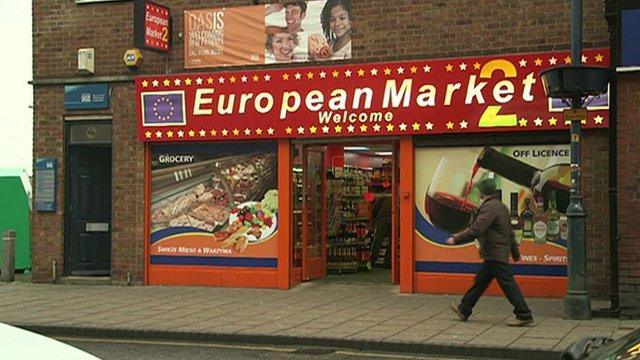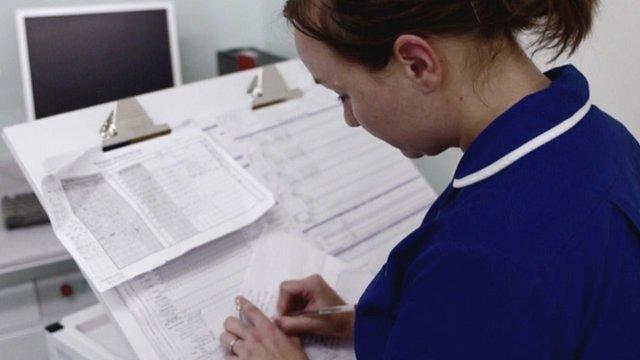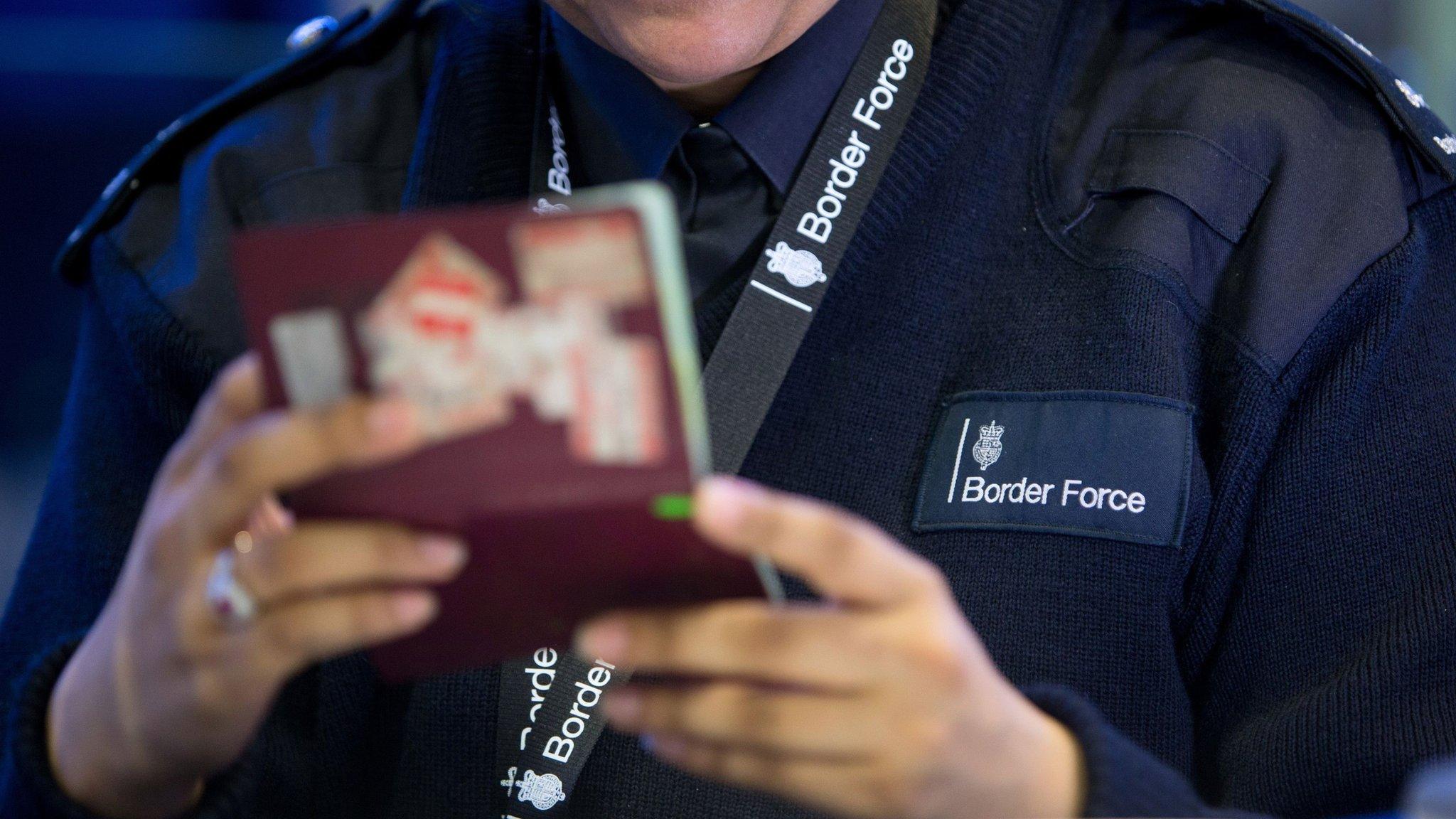Migrant population 'rose 565,000 since 2011'
- Published
- comments
Why the town of Boston has seen a big increase in its migrant population
The migrant population of England has risen by 565,000 since 2011, with two-thirds coming from the EU, analysis by the University of Oxford estimates.
The figures suggest the foreign-born population of every local authority in the country may have risen.
The Migration Observatory unit says it came up with the projections because similar official data will not be available before the general election.
The 2011 census put the population of England at 53m, with 7.3m born abroad.
Official estimates for migration focus on movements of people in and out of the UK - and national statistics only definitively record the population and where it comes from every 10 years at the national census. The latest estimate for how many migrants have settled will not be available until later this summer.
Taking two key measures of people in the UK - the 2011 census and rolling data from the Labour Force Survey - Oxford has projected that immigration has added to the population right across England as the economy has expanded.

Its analysis suggests the greatest change has been in London. Almost 3.2 million people in the capital are now born abroad - 200,000 more than at the time of the last census.
The foreign-born population of the South East is projected to have also risen to more than 1.1 million.
Official estimates do not reveal where migrant groups of different origins have settled in the UK over the past three years - but the Migration Observatory has projected what it thinks is going on for each region and local authority.
It has broken down local figures to create an online map projecting where migrants have come from, external.
Areas which have experienced rapid growth since Eastern European nations joined the EU in 2004 have continued to see those communities grow - particularly in the agricultural areas of the east of England.
'Revolving door'
There, Oxford estimates that the EU-born population is almost a quarter of a million - about 12% higher than at the time of the 2011 census.

Carlos Vargas Silva, immigration researcher at Oxford University, said migrants, particularly from the EU, were coming to England for work.
"They are finding jobs in low skilled positions and low paid jobs," he said.
"So for British workers competing in those positions it means some competition.
"For employers looking for more workers to fill those gaps it is good news because they have more employees available."
While the UK's main political parties argue over how to control immigration, the European Union free market rules allow workers to seek jobs wherever they can find them.
Witold Sobkow, the Polish ambassador to the UK, said migrants were arriving to the UK because of a "mixture of factors".
He said: "A lot of people come here because they find Britain very attractive as a country also, not just as a place to work and earn money.
"So some of them will settle down here, some of them will save money and will come back.
Carlos Vargos-Silva helped compile the figures and explains what they mean
"We call it the revolving door policy, people come and go."
Professor Tony Travers from the London School of Economics said some councils were having to deal with increased demand for services in a time when their budgets were declining.
"The government is responsible for migration policy at the borders but all migration ends up as a local government issue and it's councils that end up dealing with it," he said.
"And of course migrants don't spread themselves round neatly and thinly around the country."
And Nigel Farage, leader of UKIP which wants to limit immigration, said his party had been proved right.
"Migration to this country has been shown to be unsustainable, and councils are even seeing cuts in areas with booming populations," he added.
But Barbara Roche, co-founder of the Migration Matters Trust, a cross-party group of politicians, business executives and trade union leaders, said migrants were "making an economic contribution".
Madeleine Sumption, director of the Migration Observatory at Oxford, said: "This data shows how different local experiences of migration have been across the UK.
"There are large variations in the size of migrant populations, as well as the share that come from EU countries.
"We have undertaken this analysis to provide a resource for anyone looking to understand local demographics of migration in the run-up to the general election."
The analysis comes a week after official estimates of net migration - a measure of people moving in and out of the UK - reached almost 300,000. That total is three times higher than the target set by the prime minister but it does not necessarily count how many people stay in the UK for good.
For more on what is going on across England, watch Inside Out BBC One, Friday 19:30 - also available on the BBC iplayer.
- Published6 March 2015

- Published6 March 2015

- Published6 March 2015
- Published26 February 2015

- Published14 May 2014